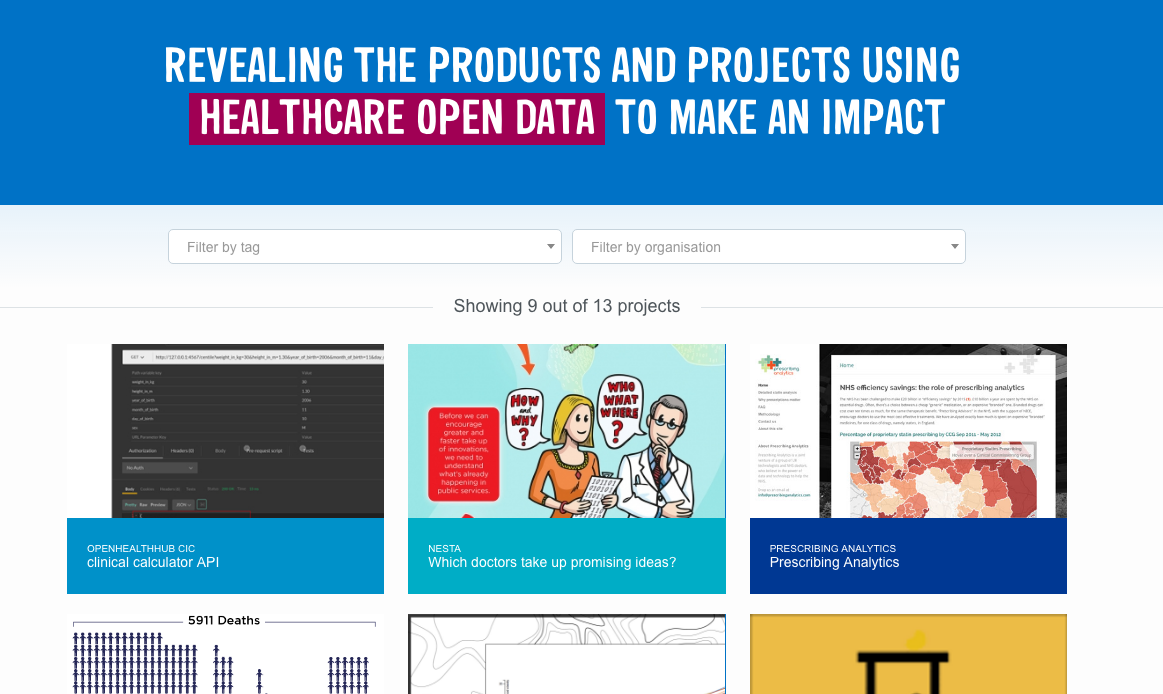Show me the data vs. Show me the things

The health system in the UK publishes a lot of data.
A quick trip to Data.gov.uk reveals 1,897 health related datasets. At the same time both NHS England and NHS Digital publish official National Statistics, not to mention the various data portals (NHS England, NHS Digital, NHS Digital again), and data published on Gov.uk.
And this is before we get to stray web pages related to specific pet political projects that contain “Download and take away data”, in some obscurantist dialect of almost-but-not quite CSV that doesn’t “just work” with any standard tools. (Yes MyNHS, I mean you.)
Data however, is incredibly boring to most humans. Which makes it really hard to understand the value of all of that data, by just looking at a list of data.
Even more so than data in general, Open Data is an abstract concept that can be hard to grasp.
For years, Open Knowledge and the Open Data Institute (and others) have worked hard on the valuable job of finding ways to make these concepts clear and accessible.
Our experience at Open Health Care is that clarity often isn’t enough - you need to make things tangible for people to really understand them. That’s the main reason that we believe in Showing The Thing - that practical demonstrations have vastly more power than descriptions or abstract concepts.
That’s why we so often build prototypes of things to help us tell stories about how the world could be better, and why we encourage communities grappling with digital and data to learn by doing.
Earlier this year, we spent some time with the Open Data team at NHS England working out how we would go about applying Show The Thing to the world of Open Health Data.
We started by doing some desk (Google and Twitter) research collecting examples of interesting projects that had used Open Health Data to build a product or service, to tell a story or start a campaign.
This turned up some old favourites - like our project from a from a few years ago visualising issues with the prescribing of non-generic Statins - as well as some interesting projects that were new to us - like the Royal College of Paediatrics and Child Heath campaign “Why Children Die”.
We then gathered these together and built a single directory website that showcases these projects in one place.
This directory helps to point people at stories and examples of things that have used open health data - and in doing so, helps to show why that data is valuable in a way that they can grapple with and kick the tyres for themselves.
For instance - one of the great things about the Open Prescribing project made by our friends at EBM Data Lab is that is has buttons you can press.
People like pressing buttons.
We’re still looking for more great examples though, so if you’ve worked on a project that uses Open Health Data that you think might be suitable for the directory, you can submit your project here.
Because it’s always great to have more things to show…
Photo credits:
Redjar

